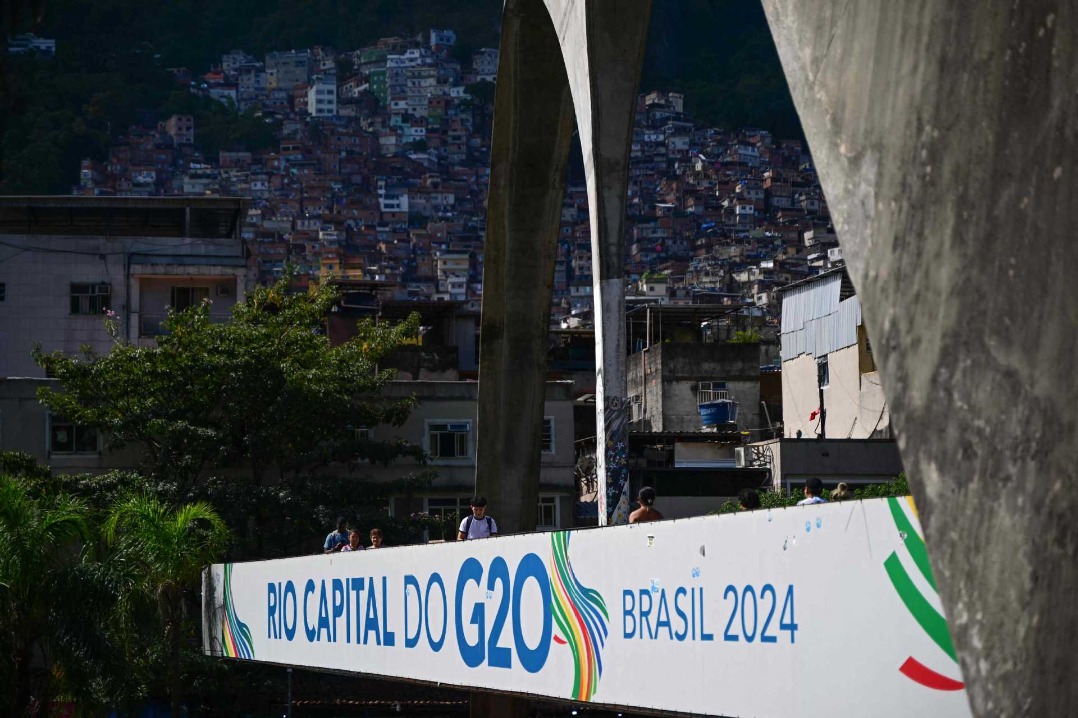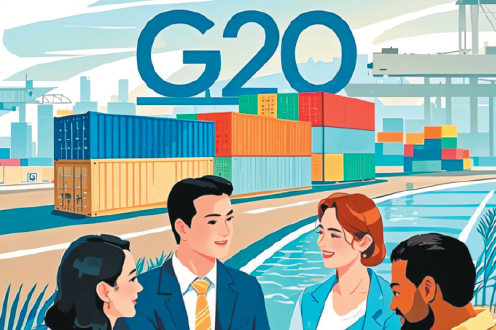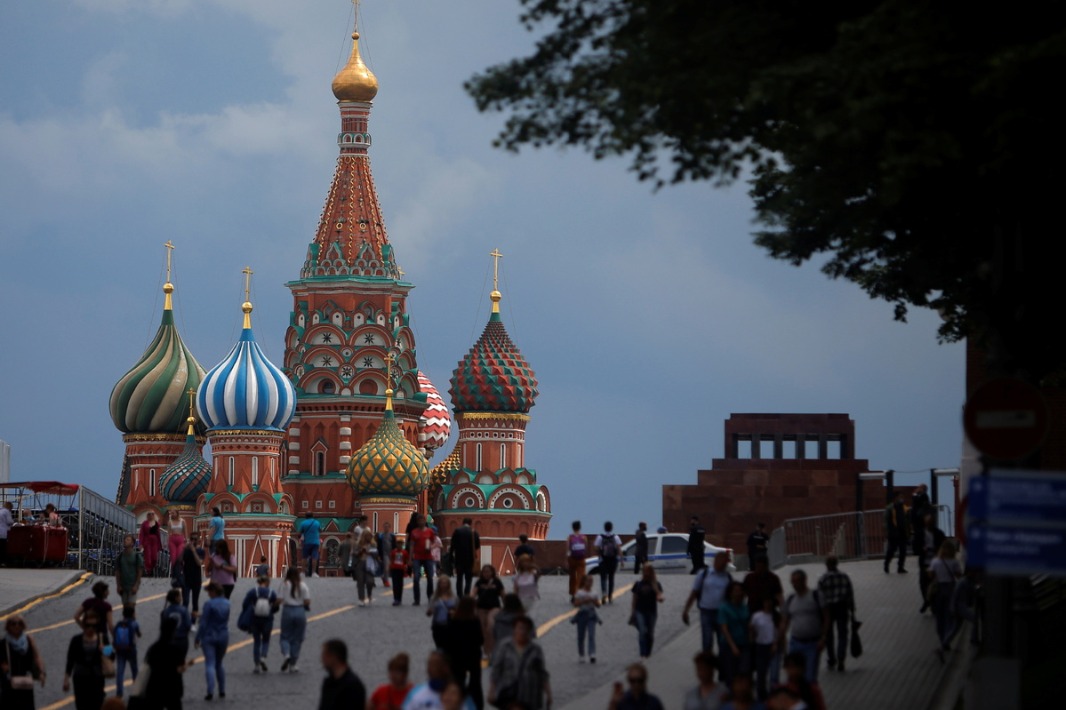G20 crucial for global governance

Establishing a just and efficient global governance system is one of the critical challenges facing humanity. After the end of World War II, global political and financial institutions, such as the United Nations, the International Monetary Fund and the World Bank, were created to facilitate stability and prosperity worldwide. However, these institutions were influenced by a handful of states, while developing countries were left behind in the system.
The end of the Cold War ushered in an era of unipolarity, marked by the hegemony of the United States. The US-led international order was dominated by a few developed countries, and the pinnacle of the system was the G7, a union of seven of the most developed and industrialized economies. The G6 was established in 1975, and Canada joined in 1976. Russia joined the club in 1998, but in 2014, its participation was suspended.
The global governance bodies established and envisaged decades ago do not represent the current political and economic realities and are unable to solve the multiple crises facing humanity, such as climate change, pandemics, poverty and hunger. Economic power has shifted from the Euro-Atlantic area to Asia in recent years. The emergence of new economic giants, such as China, India and member countries of the Association of Southeast Asian Nations, has shaken up the existing economic structures. The significant developments in Latin America and Africa further emphasized the obsolete nature of current institutions of global governance dominated by the West.
Amid the transition of global order from a unipolar world to a more complex security architecture, there was an acute necessity to establish a broader format of cooperation, which would include the rising economies of the non-Western world. In this context, the emergence of the G20 was the right decision, adopted at the right time.
The G20 was founded in 1999 after the Asian financial crisis as a forum for finance ministers and central bank governors to discuss global economic and financial issues. It was upgraded to the heads of state/government level in the wake of the 2007-08 global economic and financial crisis and, in 2009, was designated the "premier forum for international economic cooperation".
The G20 Summit is held annually under the leadership of a rotating presidency. The G20 initially focused mainly on broad macroeconomic issues. However, it has since expanded its agenda to include trade, sustainable development, health, agriculture, energy, environment, climate change and anti-corruption.
The G20 comprises 19 countries-Argentina, Australia, Brazil, Canada, China, France, Germany, India, Indonesia, Italy, Japan, Republic of Korea, Mexico, Russia, Saudi Arabia, South Africa, Turkiye, the United Kingdom and the United States — and two regional bodies: the European Union and the African Union.
The G20 members represent around 85 percent of the global GDP, over 75 percent of the global trade and about two-thirds of the world population.
The members of the G20 have a primary responsibility toward billions of people. It is an international body that unites Western and non-Western countries, allowing them to discuss all fundamental issues faced by mankind and bringing the voice of developing countries to the center stage of global governance. The issues such as the fight against hunger and poverty occupy a significant place in the discussions of the G20. At the initiative of the 2024 G20 Summit host country, Brazil, the Global Alliance Against Hunger and Poverty was launched on Nov 18, the first day of the summit.
In the declaration of the summit, G20 members reaffirmed the role of the G20 as the premier forum for international economic cooperation. They emphasized a collective responsibility for the effective stewardship of the global economy, fostering the conditions for sustainable, resilient, and inclusive global growth.
China has always been one of the key members of the G20.
Being the second-largest world economy, China has been pushing forward the idea of a responsible great power. From 2021 to 2023, President Xi Jinping proposed three large-scale global initiatives: the Global Development Initiative, the Global Security Initiative and the Global Civilization Initiative. These initiatives provide insights into Chinese perceptions of its role and responsibilities as a great power.
Thus, the G20 is gradually taking center stage in the system of global governance, reflecting the shifts in the global economy and providing a venue for developing countries to take part in the decision-making process. Further development of the G20 is essential for overcoming the challenges and ensuring stability, prosperity and security of mankind.
The author is chairman of the Center for Political and Economic Strategic Studies in Yerevan, Armenia.?The views do not necessarily reflect those of China Daily.

































